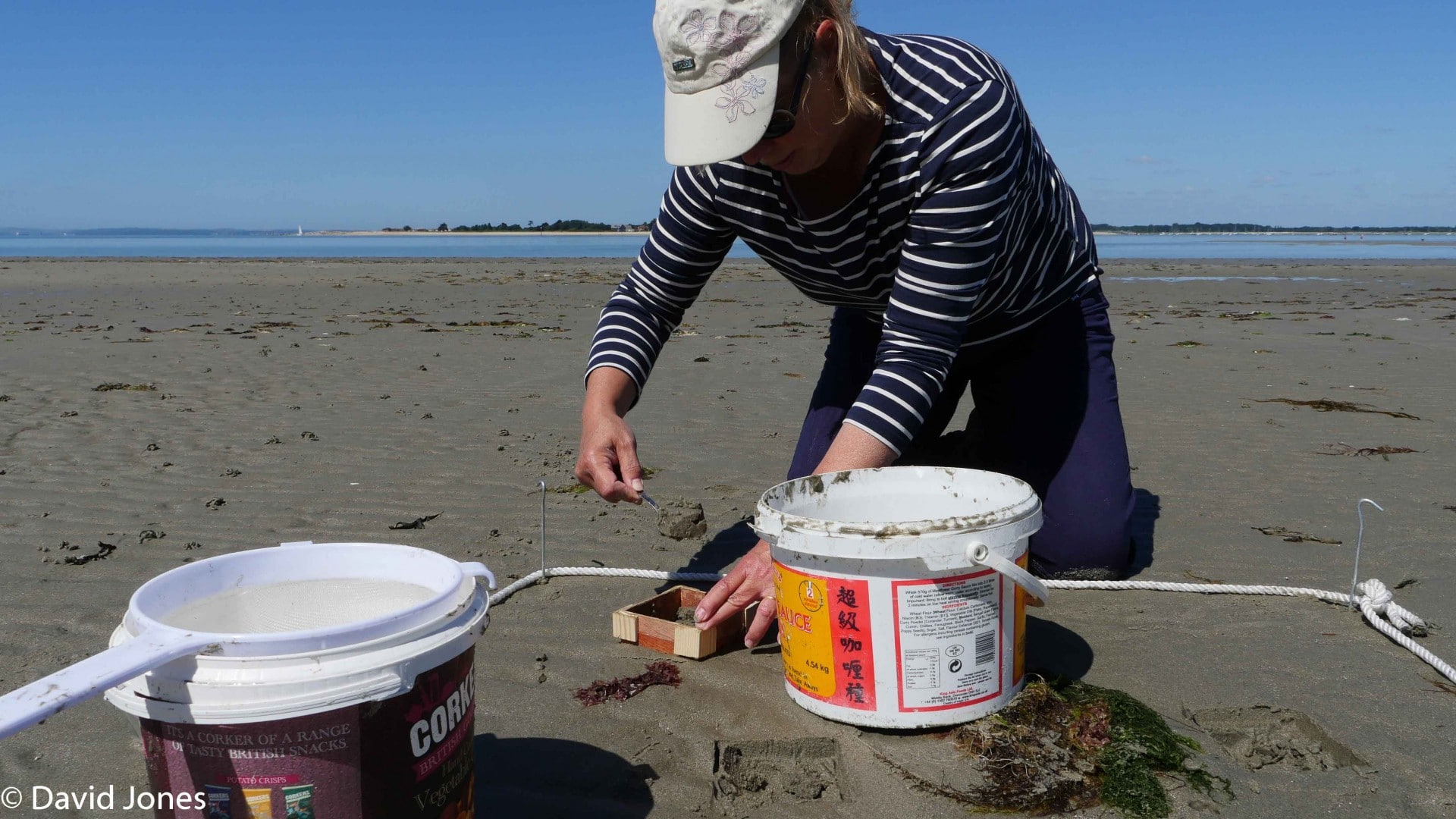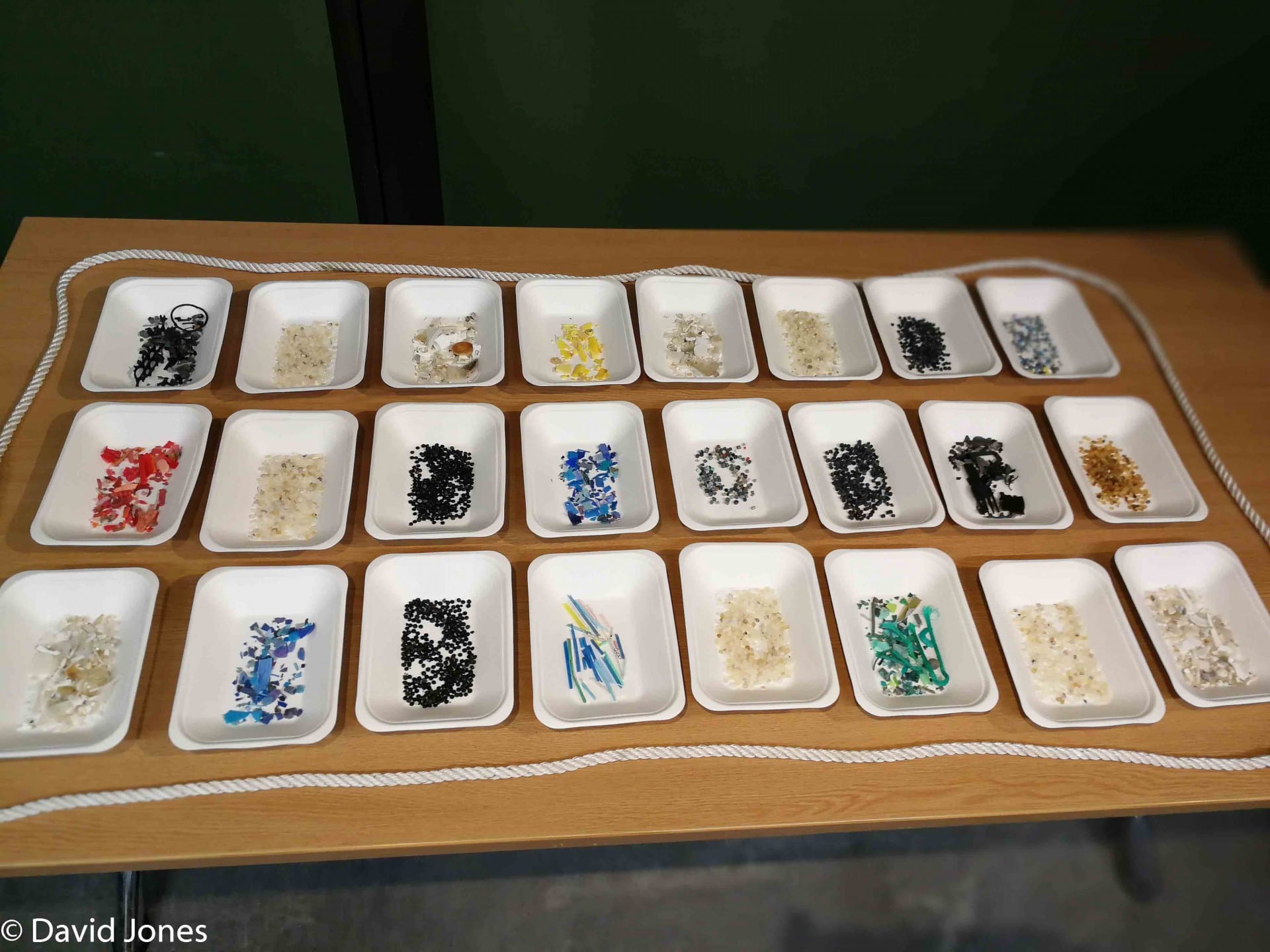News
Government backs student microplastic survey

A global citizen science project begun by a university student has won the backing of the UK government’s Environment Agency.
University of Portsmouth PhD student David Jones launched The Big Microplastic Survey, thought to be a world-first, in an attempt to measure the microplastic pollution rates on beaches and riverbanks worldwide.
Microplastics are small fragments of larger plastic waste which have broken down to 1mm-10mm in size, which means they tend to escape the attention of beach clean-ups.
They are known to cause serious harm to wildlife and, it is thought, to humans once they reach the food chain.
Within days of launching the survey, volunteers had signed up in Hawaii, Mozambique, Australia, Mexico, South Africa, the Netherlands and across the UK.
David said: “One of the biggest global issues affecting our oceans is microplastics and while much of the focus of attention at the moment is on cleaning the bigger pieces of plastics from our beaches, we know that microplastics are having a devastating impact on the environment. They are being ingested by fish and birds and getting into the food chain. They are also having an impact on human health and we need to know more. This project is all about getting people involved and gathering lots of data.”
The Environment Agency has thrown its weight behind David’s survey by getting its monitoring teams to survey 22 Devon and Cornwall beaches on September 6.
It is also calling for more volunteers to join the survey across Britain.
Bruce Newport, head of the Environment Agency’s plastics and sustainability team, said: “We are committed to making plastic pollution a thing of the past. We have partnered with the University of Portsmouth to collect samples of microplastics from our beaches for scientific analysis. The results will tell us the abundance, source, type and characteristics of the plastic found, which is essential if we are to understand the global plastic problem better and direct resources to solve it effectively.”
David is a leading anti-plastics campaigner, a deep sea diver, underwater cameraman and former military officer who founded not-for-profit organisation Just One Ocean.
He said: “While much of the public’s focus is on cleaning up the larger pieces of plastic from our beaches, the biggest threat to wildlife and human health is the ever increasing amount of microplastics. The responsibility for protecting our coastal and marine environment belongs to us all.”
Research to measure the distribution and scale of the microplastic problem is essential, David says, if we are to develop strategic plans to prevent this crisis becoming a catastrophe.
The survey is also open to anyone visiting a beach, riverbank or lakeside anywhere in the world.
The University of Portsmouth will provide research facilities for the management and analysis of data and will be a focus point for further research as the project develops.
The survey is ongoing and anyone can take part at any time. The method is simple and instructions for taking part are on: http://microplasticsurvey.org/
To keep up to date with this project you can also visit:
Gear News
Introducing the TR-80, IR-50 and CS-30 Regulators from DYNAMICNORD

Whether you are a beginner or a professional diver – with the three new main regulators from DYNAMICNORD, everyone will find their favourite regulator. They all look super stylish.
Excellent performance with the TR-80
Quality and performance are the be-all and end-all for regulators. It is not for nothing that the TR stands for Tec Reg. The innovative design of the TR-80 guarantees absolute reliability – even in ice-cold waters.

Perfect breathing effort at 0.8 J/l / certified for diving in waters below 10 degrees / structural design made of solid brass for best cold protection / membrane-compensated design with dry seal of the first stage / reduced exhalation effort thanks to optimized exhalation membrane and bubble deflector / adjustable Venturi (dive/predive) and adjustment knob for individual inhalation comfort / innovative design of the front cover prevents free-flow in strong currents or when diving with scooters / design made of sandblasted brass, matt chrome finish / 2 HP and 4 LP outlets / mouthpiece made of high-quality, anti-allergic silicone for maximum comfort.


Amazing underwater adventures with the IR-50
The IR-50 is the top regulator for advanced and experienced divers. Natural breathing is the essence of this regulator.

Ideal breathing effort at 0.8 J/l /certified for diving in waters below 10 degrees / compensated membrane / adjustable venturi (dive/predive) and adjustment knob for individual inhalation comfort/ outlet valve and deflector for minimum exhalation effort and reduction of bubbles on the face / design made of sandblasted brass, matt chrome finish / 2 HP and 4 NP outlets / mouthpiece made of high-quality, anti-allergic silicone for maximum comfort.


The Workhorse – our CS-30
For diving centres and diving beginners – the workhorse stands for strong construction, reliability and robustness. Perfect for your training.

Optimal breathing effort at 0.8 J/l /recommended for diving in waters above 10 degrees / non-compensated piston / adjustable venturi (dive/predive) / outlet valve and deflector for minimum exhalation effort and reduction of bubbles on the face / design made of sandblasted brass, matt chrome finish / 1 HP and 3 NP outlets / mouthpiece made of high-quality, anti-allergic silicone for maximum comfort.


Octopus OP-30
The OP-30 is the ideal addition to all DYNAMICNORD regulators. It is identical in construction to the CS-30.

The TR-80, IR-50, CS-30 (DIN & INT) regulators and the Octopus OP-30 are available from DYNAMICNORD dealers and in the online store.
DYNAMICNORD – Your Outdoor Companion.
Marine Life & Conservation
Paul Watson Released as Denmark Blocks Japan’s Extradition Bid

Renowned anti-whaling activist Paul Watson has been released from custody in Greenland after spending five months in detention. Denmark’s Justice Ministry rejected Japan’s request for his extradition, citing insufficient guarantees that his time already served in custody would be credited against any potential sentence.
The 74-year-old Canadian-American was arrested on July 21 in Nuuk, Greenland’s capital, when his ship docked to refuel. His arrest was based on a 2012 Japanese warrant related to a 2010 encounter in Antarctic waters. Japan alleged Watson obstructed operations and caused damage to a whaling research ship during efforts to disrupt illegal whaling. Watson has consistently denied these claims, maintaining his commitment to marine conservation.
Denmark, which oversees extradition matters for Greenland, concluded that while the legal conditions for extradition were met, the lack of assurances from Japan regarding time-served credit made extradition untenable.
In a video shared by his foundation, Watson expressed gratitude and relief, saying, “After five months, it’s good to be out… and good to know they’re not sending me to Japan.” He added that the most difficult part of his time in custody was being separated from his two young sons.
Watson is a pioneering figure in marine conservation, known for founding the Captain Paul Watson Foundation in 2022 after decades of activism with the Sea Shepherd Conservation Society. His bold efforts to defend marine life have earned him widespread support, including from celebrities and conservationists. His work has also been featured in the acclaimed reality TV series Whale Wars.
Watson’s lawyer, Jonas Christoffersen, praised the decision, stating, “We are happy and relieved that Paul Watson is now free.” He added that Watson is eager to reunite with his family and continue his vital work.
The arrest occurred while Watson’s vessel, the M/Y John Paul DeJoria, was en route to the North Pacific with a team of 26 volunteers to intercept a Japanese whaling ship. His foundation described the arrest as politically motivated and emphasized that Watson’s actions were focused on ending illegal whaling practices.
Japan resumed commercial whaling in 2019 after leaving the International Whaling Commission, asserting that whale meat is a cultural tradition. Conservationists, however, continue to challenge these practices, highlighting their impact on marine ecosystems.
Despite the challenges, Watson remains steadfast in his mission to protect marine life and bring attention to whaling practices. His dedication to ocean conservation has made him a globally respected advocate for the environment.
-

 News2 months ago
News2 months agoIconic SS United States to become the World’s Largest Artificial Reef
-

 News3 months ago
News3 months agoBook Review – 52 Assignments: Underwater Photography
-

 Gear News3 months ago
Gear News3 months agoDYNAMICNORD – New German diving brand enters the British market
-

 News3 months ago
News3 months agoExploring Cenote El Pit: A Diver’s Dream
-

 Gear News3 months ago
Gear News3 months agoTry BARE drysuits (and maybe even win one!) this Friday with Sea & Sea at North West Dive Fest
-

 Marine Life & Conservation3 months ago
Marine Life & Conservation3 months agoBook Review: Coral Triangle Cameos
-

 Blogs2 months ago
Blogs2 months agoDive the Egyptian Red Sea this Autumn with Regaldive
-

 News3 months ago
News3 months ago2024 Ocean Art Underwater Photo Competition Announced

















